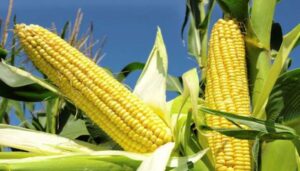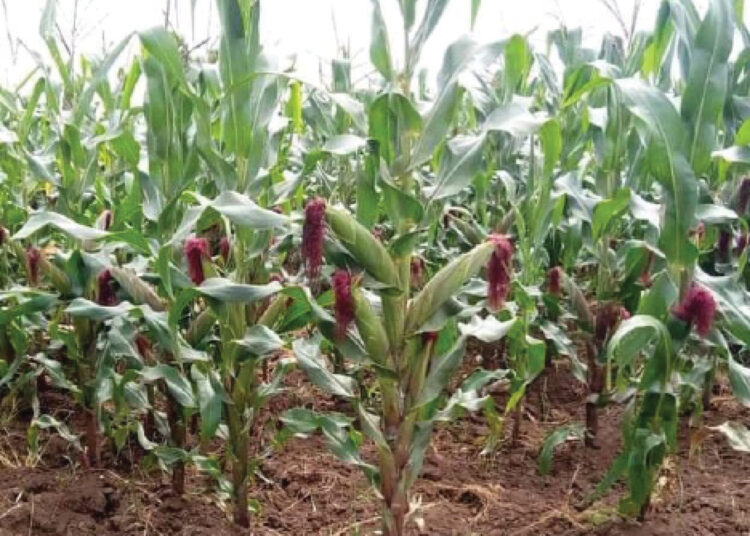In the face of growing public skepticism surrounding genetically modified organisms (GMOs), a team of distinguished professors and scientists from the Institute for Agricultural Research (IAR), Ahmadu Bello University, Zaria, has declared it is safe for consumption.
The professors declared that TELA maize, which they developed, was safe for consumption, adding that technology and innovation are the best solutions to food insecurity.
However, the professors have reassured Nigerians of the safety and benefits of TELA maize, a genetically modified crop developed to tackle specific agricultural challenges.
The long-term goal of TELA is to make drought-tolerant and insect-protected maize varieties, it was gathered.
During a courtesy visit to the LEADERSHIP Group’s headquarters in Abuja, the delegation, led by a representative of the IAR chairman, Prof Lucius Bamaiyi , said the institute’s visit was aimed at demystifying misconceptions and misinformation about GMOs, particularly about the controversial TELA maize.
Prof Bamaiyi outlined IAR’s core mandate as developing high-yielding and drought-resistant crop varieties tailored to Nigeria’s agricultural needs.
He described TELA maize as a product of modernisation and scientific innovation designed to address persistent issues such as pest infestations and changing climatic conditions.
“TELA maize is not just about improving food security; it is about safeguarding the livelihoods of farmers, enhancing productivity and addressing the specific threats posed by fall armyworms, stem borers, and recurrent drought,” he said.

Also speaking during the visit, Professor Muyideen Oyekunle, a plant breeder and one of the lead researchers on the Tela maize project, traced the development of the crop from its inception in 2019.
He stressed that after years of rigorous scientific trials, risk assessment, and regulatory scrutiny, the maize has been certified safe for human consumption and the environment.
“Our research has been thorough, evidence-based and in alignment with global safety standards. The fear-mongering around GMOs is largely uninformed. TELA maize has passed all necessary biosafety evaluations, and we can confidently say it poses no harm to human health,” Prof. Oyekunle asserted.
Another expert from the Institute, Prof. Memuma Abdulmalik, corroborating this position, explained that the genetic modification involved in developing TELA maize was targeted explicitly at neutralising key agricultural threats, particularly pest infestation and drought.
According to her, these modifications do not alter the nutritional composition or safety of the crop.
“The sole aim of TELA maize’s genetic enhancement is to protect crops from the fall armyworm and stem borer and to boost drought tolerance, nothing more. The modification does not introduce any harmful element to the maize or pose any danger to the environment,” she clarified.
On his part, Prof Shehu Ado stated that adopting TELA maize significantly reduces the need for chemical insecticides and pesticides, which often pose greater health and environmental risks than crops.
“By reducing the reliance on harmful agrochemicals, TELA maize contributes to a more sustainable and eco-friendly agricultural system,” he added.
The experts also pointed out that misinformation about GMOs had stalled the adoption of life-saving agricultural innovations in Nigeria. They urged the media to disseminate accurate, science-based information proactively.
TELA maize, developed under the African Agricultural Technology Foundation (AATF)-led TELA Maize Project in collaboration with IAR and other stakeholders, continues to undergo multi-location field trials and is currently approved for cultivation in several regions in Nigeria.
As public debates around genetically modified crops continue, the IAR team reaffirmed its commitment to transparency, safety, and delivering solutions that empower farmers and ensure national food security.
Nigeria Can Save N900bn Yearly With TELA Maize – IAR
The Institute for Agricultural Research (IAR), Ahmadu Bello University, Zaria, has maintained that Nigeria could save over N900 billion annually by adopting genetically modified TELA maize varieties.
According to the institute, TELA maize adoption could also drastically reduce dependence on imported pesticides used to combat destructive pests such as the fall armyworm.
The executive director of IAR, Professor Ado Adamu Yusuf, outlined the significant economic and agricultural benefits of TELA maize and emphasised the urgent need to correct public misconceptions about biotechnology crops.
According to him, Nigeria spends more than N900 billion (approximately $600 million) annually on importing chemical pesticides to control maize pests like the fall armyworm, excluding the application cost.
He noted that introducing pest-resistant and drought-tolerant TELA maize (SAMMAZ 72T to 75T) would drastically cut this expenditure, boost farmers’ productivity, and conserve foreign reserves.
Key benefits of TELA maize highlighted during the visit include: pest resistance, drought tolerance, increased yields and food security.
Yusuf also stressed that the Institute remains committed to supporting President Bola Ahmed Tinubu’s Renewed Hope Agenda by using agricultural innovation to drive economic diversification, empower rural communities and attract investment.
“We are seeking your partnership to educate the public, correct the misinformation being peddled by non-experts and support farmers with the truth.
Most Nigerians, including some of our respected media colleagues, are unaware of the technology. Therefore, the visit aims to create awareness of the workings of biotechnology in improving crop production in Nigeria and disabuse Nigerians of the country’s adverse reports on biotech crops,” he said.
“TELA maize varieties (SAMMAZ 72T, 73T, 74T & 75T) are a game changer for Nigerian agriculture, they are genetically engineered to resist devastating pests such as the fall armyworm and stem borer, which have severely affected maize production. They also offer drought tolerance, making them suitable for Nigeria’s changing climate conditions.”
TELA maize is not just another crop, it is a breakthrough that could transform Nigerian agriculture”, he added.
He called on LEADERSHIP and other media organisations to support the campaign against misinformation on biotechnology by reporting accurately and responsibly on agricultural research and innovation.
We’ve got the edge. Get real-time reports, breaking scoops, and exclusive angles delivered straight to your phone. Don’t settle for stale news. Join LEADERSHIP NEWS on WhatsApp for 24/7 updates →
Join Our WhatsApp Channel










